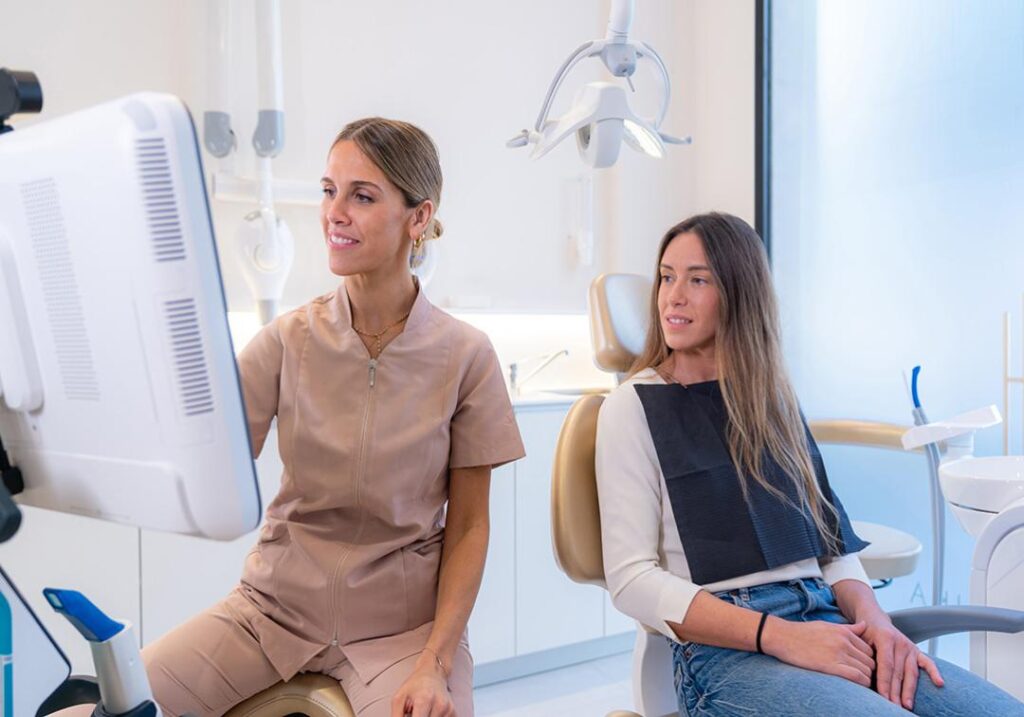
Australian healthcare is embracing a digital revolution, with artificial intelligence (AI) leading the charge. While many are familiar with AI’s role in scribing services for general practitioners, fewer may realize its potential to enhance diagnostic accuracy, improve treatment planning, and support health education in dentistry.
AI is fast becoming a game-changer in dental care. Imagine creating orthodontic treatment plans that deliver predictable outcomes or boosting the success rate of root canals and dental implants by recommending approaches based on individual risk profiles. This technological advancement is not just a vision for the future; it’s happening now.
Transforming Dental Practice
AI’s integration into dental care offers numerous benefits. It can diagnose and measure changes in gum disease, test for cavity-causing bacteria, and create disease risk profiles. Moreover, AI can detect mouth cancers early, prevent infections in immunocompromised patients, enhance x-ray and radiology diagnoses, and even print fillings and caps using 3D computer-aided design. These innovations are empowering remote and telehealth services, allowing for self-monitoring and greater patient autonomy.
Dental education is also undergoing a transformation. Students now have the opportunity to practice procedures on home-based platforms and simulate complex treatments before entering the clinic. The rapid uptake of technology in clinical practice has prompted a scoping review of 31 peer-reviewed papers on AI applications in dental and general healthcare.
“The promise of rapid health diagnostics and streamlined workflows is enthralling. Yet AI deployment in our healthcare requires transparent and robust evaluation frameworks to prevent misdiagnosis, promote equity, and maintain professional trust.”
Key Considerations for Patients and Practitioners
As AI becomes more prevalent in healthcare, patients and practitioners alike must navigate this new landscape with informed questions and considerations. Here are some critical questions to ask healthcare professionals:
- Is the software registered with the Therapeutic Goods Administration (TGA)? AI-enhanced software that achieves therapeutic purposes is treated as a medical device in Australia, ensuring rigorous testing for safety and accountability.
- How is my information managed? Large volumes of data are required to train AI systems, raising concerns about privacy and confidentiality. Patients should inquire about data usage, storage, and compliance with Australian guidelines.
- Are AI-supported programs 100% accurate? Predictive outcomes require extensive data, and AI may sometimes fill in gaps, leading to potential inaccuracies known as “hallucinations.”
- Can my health practitioner validate AI-recommended treatments? While AI can aid decision-making, the responsibility for patient care ultimately lies with trained practitioners who must understand AI’s pros and cons.
Implications for Healthcare Professionals
Beyond dentistry, AI’s impact extends to 11 other health professions registered with the Australian Health Practitioners Regulation Agency. These include practitioners in Aboriginal and Torres Strait Islander health, Chinese medicine, chiropractors, medical radiation, occupational therapy, optometry, osteopathy, paramedicine, pharmacy, physiotherapy, and podiatry.
Healthcare workers in these fields may find the publication Artificial Intelligence in Australian Dental and General Healthcare: A Scoping Review in the Australian Dental Journal helpful for understanding professional obligations within the Australian context.
A Future to Make You Smile
The adoption of AI and digital technology in healthcare is akin to a teenage phase, full of potential and growth. Exciting developments across various fields are poised to change how we prevent, treat, and manage health. By reducing cognitive loads on practitioners, AI enables truly patient-centered care.
AI can automate administrative tasks, provide shared expertise, and offer “second” expert opinions swiftly. In complex treatments, multiple practitioners can collaborate across locations to practice and refine procedures before performing them on patients.
In an AI-augmented future, health practitioners will have more quality time to spend with patients, improving health outcomes and extending healthy lives. This future promises not only to make you smile but to ensure you live a healthier life for longer.







